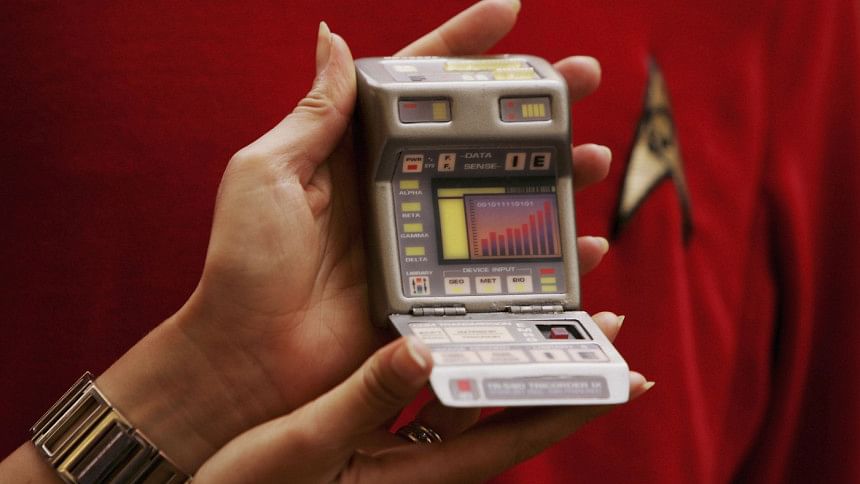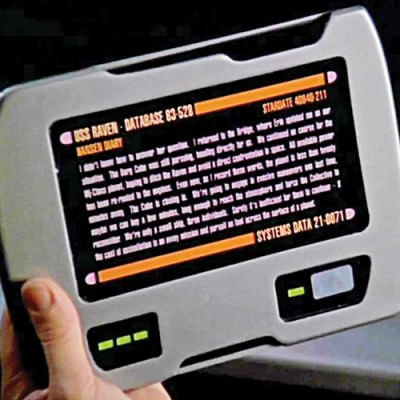Star Trek gadgets that are no longer fiction


For people growing up in the 1960s, 80s and 90s, Star Trek provided a vision of the future. It seems that the future arrived sooner than the writers could have imagined then. Many of the gadgets and gizmos that were initially popularized by the show then are being taken for granted now. In many cases, inventors might have taken inspiration from the shows of the franchise to develop practical uses for many commonly used present-day household technologies.
Here are some Star Trek gizmos that became real or are now becoming real.
Cellular phone
Martin Cooper, who is credited with the invention the first viable cellular phone has stated publicly that he was inspired by the Star Trek version of personal communicators, which was an amazing concept back in 1966. Star Trek's influence grew further as phone developers went on to create flip phones that exactly matched the props used in the series.
An often overlooked technological marvel today, the cellular phone is probably the most obvious prediction the original Star Trek series got right.
Tablet Computer
During the debut of Star Trek: The Next Generation, a concerted effort was made to make the new show stand out from its predecessor. As a result, among the new additions to Star Trek's technological capabilities was the Personal Access Display Device or PADD, a thin, flat touchscreen computer device.
In 2010, the first commercially successful tablet computer, the iPad came into existence and since then modern life has seen a variety of tablet computer devices. This is a prediction that Star Trek not only got right but if anything underestimated just how prevalent it would become.
Intelligent Virtual Assistant
You can talk to a computer (voiced by Majel Barrett Roddenberry, Star Trek creator Gene's wife) in the Star Trek universe. The franchise features computers which the user can speak to and receive logical answers from. These days, smartphone and computer users regularly engage in voice-activated conversations with digital personal assistants such as Siri and Cortana. Google even codenamed its voice-based service "Majel" in honour of Barrett Roddenberry.
Universal Translator
Star Trek is a show that deals with difficulties of interactions between a variety of alien races. Such a circumstance called for a universal translator that could listen to any language and output it into an understandable language. In the later shows, it was integrated into the communication badges.
While Google translate has been the centre of jokes surrounding automatic translation, many companies are developing translation software and smartphone apps that can produce correct translation instantaneously by listening to the speaker.

Replicator
In Star Trek: The Next Generation, Captain Jean-Luc Picard would say "Tea, Earl Grey, Hot!" and it would be replicated immediately. It was not necessary to think too hard about the scientific logic behind the replicator while creating such a device for the show.
Replicators are becoming common and affordable every day as the price of 3D printers is dropping dramatically. 3D printers do not tackle tea, or food for that matter and use mostly plastic as a building material but there is still a wide range of practical applications for the device.
The world has changed a lot since the show, Star Trek initially debuted. The television show popularized many fictional concepts that were later created in real life by scientists who were inspired by watching the adventures of Captain Kirk and his crew.

 For all latest news, follow The Daily Star's Google News channel.
For all latest news, follow The Daily Star's Google News channel. 



Comments